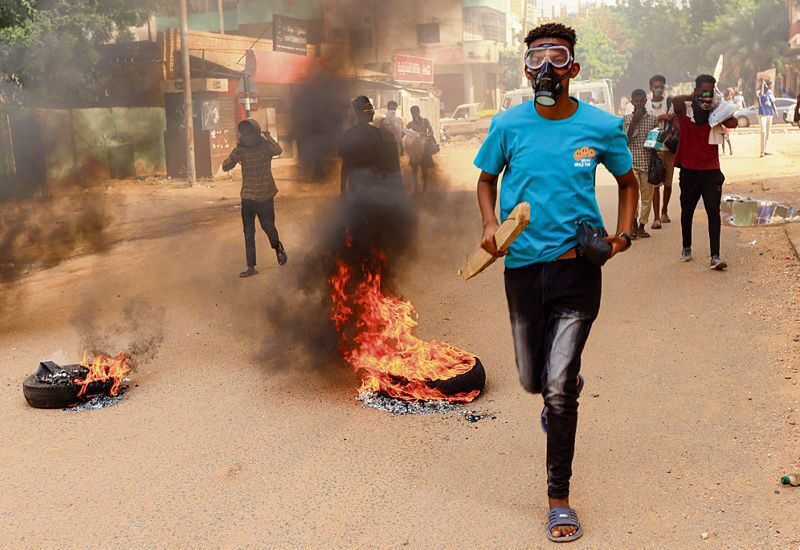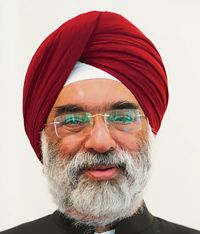Conflicting interests keep Sudan on the boil
- June 6, 2023
- Posted by: admin
- Category: Russia

The Russian Wagner Group is reportedly backing the Rapid Support Forces (RSF). However, after the mayhem and a tentative ceasefire, the regional actors seem to have taken a pause. Egypt, along with its Arab friends, is taking a more distant view and letting the Intergovernmental Authority on Development initiative proceed.
By:


Gurjit Singh
Former Ambassador to African Union
THE recurring crisis in Sudan over the past two decades is saddening. Sudan was the largest country in Africa, among the first to be decolonised, and a close friend of India. There is a Sudan block at the National Defence Academy in Khadakwasla. In 1955, at the Bandung Asian-African conference, India was at the forefront of inviting emerging African countries such as Sudan and Ghana to the meet. India has contributed to the consolidation of their independent identity. Sudan attracted Indian investment in oil, sugar, etc.
Even after South Sudan seceded in 2011, the Darfur crisis, which began in 2003, continued. Competing Afro-Arab forces, stoked by various regional players, fought the government in Khartoum. Sudan was governed by military dictator Omar Bashir from 1989 to 2019. He had links with Al-Qaeda and, ultimately, was put on the wanted list by the International Criminal Court, restricting his movements.
Khartoum escaped the first Arab Spring, but in 2019, Bashir was toppled in a countercoup, backed by the Forces of Freedom and Change (FFC). The promise of a transitional government guided by the army was often kept in abeyance. Sudan saw a whiff of freedom under Prime Minister Abdalla Hamdok, who was backed by the army. He attracted new investments, got sanctions lifted and led Sudan towards normalcy. The pace at which he worked perhaps upset the balance in Khartoum; in 2021, he was removed in another coup. At that time, he was the Chairperson of the Intergovernmental Authority on Development (IGAD), the political bloc of the region.
This led to two strange situations. Firstly, due to the coup, Sudan was suspended by the African Union (AU). Secondly, the IGAD was rendered headless because of the crisis in Sudan.
The current problems in Sudan are due to the rise in influence of the Rapid Support Forces (RSF), which cohabited with the army to rule. Gen Mohamed Hamdan Dagalo aka Hemedti of the RSF was the Deputy President and Gen Abdel Fattah al-Burhan was the President. The army is traditionally the Khartoum elite, which is used to governing Sudan for decades after coups.
For practical reasons, they had accommodated the RSF, which is mainly backed by the old Darfur militia. The RSF is a successor to Darfur groups, including the cruel Janjaweed, the most feared survivors among all the competing groups in Darfur.
Hemedti created the paramilitary RSF from the remnants of the Janjaweed, but expanded it rapidly. Inadequately employed youths are easily radicalised and militarised in several African countries. The RSF successfully achieved this as Sudan has a median age of 19 years. The RSF numbers are about a third of the Sudan army, but they held off the army, attacked it in Darfur, Khartoum and other places and captured central Khartoum civilian areas. This prevented the army from undertaking serious operations or using the Air Force, lest it be accused of attacking civilian areas. The RSF is less concerned with that, and has larger control over Khartoum.
This is a typical contention between the centre and the periphery. The RSF is essentially from the periphery of Darfur, which adjoins Chad, Central African Republic and Libya. Since the militant RSF had plenty of men and material, they were often used by competing powers to play a role in Yemen and Libya. This has strengthened them, allowing them to play a bigger role in Sudan.
The military said they wanted to move to a democratic transition faster and abide by the transition expected for 2023. The RSF is less keen on this change. Further, the RSF opposes a quick integration into the army; the army, in turn, resists that. This contradiction remains unresolved.
Who is going to bell the cat now? Institutionally, the UN has become weak. Its long-standing special representative is disliked by both sides and is unable to play any role. The AU is dealing with a suspended country. How to have leverage over a suspended member is a new challenge for the Peace and Security Council of the AU. The Arab League seems equally helpless, having no influence in the matter.
Under the principle of subsidiarity, the AU seeks an IGAD initiative to create conditions for negotiations. The IGAD has a three-member presidential delegation, comprising the Presidents of Djibouti, South Sudan and Kenya. Initially, they could not go there due to the inability of planes to land in Khartoum. Now, the South Sudan President has sought army and RSF negotiators, who could engage IGAD to possibly find a solution.
On the ground, reports suggest that this is going to be a long-drawn-out affair because the army does not want to share power with the RSF any further. The RSF tasted power in Khartoum, and does not see why it should remain peripheral. Its fighting capacities seem to be better.
Rivalries among regional powers are impacting this conflict. Egypt traditionally backed the army out of solidarity with its own kind of government. It requires Sudanese support against Ethiopia over the Grand Ethiopian Renaissance Dam on the Nile. The UAE, which works with Egypt in Libya, for instance, has been on the side of the RSF along with Eritrea, which has a border with Sudan. The RSF has control of mines of gold and other resources, which attract both state and non-state actors.
The Russian Wagner Group is reportedly backing the RSF. It operates from the Central African Republic and is close to the RSF in Darfur. However, after the mayhem that has happened, and a tentative ceasefire, the regional actors seem to have taken a pause. The UAE and Saudi Arabia are now not openly backing the RSF because the problem has become different in the Sudanese context. Egypt, along with its Arab friends, is taking a more distant view and letting the IGAD initiative proceed. Ethiopia is watching with trepidation because uncertainty in Sudan is troublesome for it. Ethiopia and Tigray are already having negotiations in Kenya to settle their civil war, and they least want another civil war to overtake their concerns.
